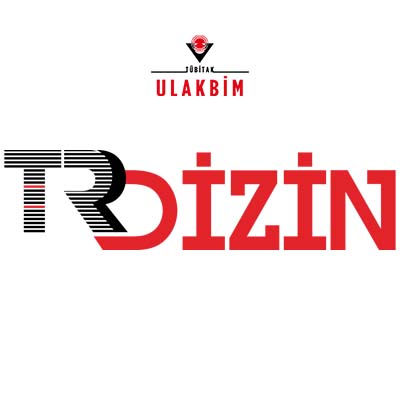Covid-19 Salgını Çerçevesinde Geleneksel Güvenlik Anlayışına İlişkin Bir Eleştiri ve İnsani Güvenliği Yeniden Düşünmek (A Criticism of the Traditional Security Understanding and Rethinking Human Security Within the Framework of the Covid 19 Pandemic)
DOI:
https://doi.org/10.15659/ankad.v7i3.260Anahtar Kelimeler:
Geleneksek güvenlik anlayışı- yeni güvenlik anlayışı- Covid-19 salgını- insani güvenlikÖzet
Soğuk Savaş’ın sona ermesi ve küreselleşme sürecinin kazandığı ivmeyle birlikte doğrudan insanı hedef alan değişen ve çeşitlenen birçok yeni tehdit ortaya çıkmış, bu durum tehditlerle mücadele konusunda yalnızca askeri yöntemlere bel bağlayan geleneksel görüşün yeni tehditlerle mücadele etme konusunda yetersiz kalmasına neden olmuştur. 1990’lı yıllarda geleneksel görüşün iddia ettiğinin aksine yalnızca devletleri değil, bireyleri hatta yaşadığımız dünyayı da referans nesnesi olarak gören ve kökenleri liberalizme dayanan Yeni Güvenlik Anlayışı ortaya çıkmıştır. Bu anlayış, güvenliğin gündemini insan güvenliğinden küresel güvenliğe kadar uzanacak şekilde çevresel, toplumsal ve ekonomik alanlarda ortaya çıkan veya çıkabilme potansiyeli olan tehditleri de içine alarak genişletmiştir. Dolayısıyla da ulus-aşırı suçlar, göç, aşırı nüfus artışı, kıt kaynaklar, ekonomik dengesizlik, salgın hastalıklar, doğal afetler vb. birçok konu yeni güvenlik anlayışının asıl gündemini oluşturmuştur. Bu kapsamda, Çin’in Wuhan kentinde ortaya çıkıp bütün dünyaya yayılarak küresel bir tehdit haline gelen Covid-19 salgını geleneksel görüşün sorgulanmasına neden olmuş, yeni güvenlik anlayışı ya da insan güvenliği üzerine yeniden düşünülmesine olanak tanımıştır. Bu çalışma, geleneksel güvenlik anlayışının devletlerin güvenlik politikalarından uzak kalmadığını kabul etmekle birlikte, geleneksel görüşün Covid-19 salgını ile mücadelede yeterli olup olmadığını saptamayı ve geleneksel görüşünün genişlemesi olarak da görebileceğimiz yeni güvenlik anlayışının görüşlerini Covid-19 salgını çerçevesinde değerlendirmeyi amaçlamaktadır.
Referanslar
Akgül-Açıkmeşe, S. (2011). Algı mı, söylem mi? Kopenhag okulu ve yeni klasik gerçekçilikte güvenlik tehditleri. Uluslararası İlişkiler Dergisi, 8(30), 43-73.
Alameşe, Y. (2021). Covid-19 salgını ve insani güvenlik. İstanbul Kent Üniversitesi İnsan ve Toplum Bilimleri Dergisi, 2(1), 33-48.
Alkanat, A. (2021). 5 Soru: Dünya genelinde aşı adaletsizliği. Siyaset, Ekonomi ve Toplum Araştırmaları Vakfı (SETA), [Erişim tarihi: 20.06.2023. https://www.setav.org/5-soru- dunya-genelinde-asi-adaletsizligi/].
Ateş, D. (2009) Uluslararası ilişkiler disiplininin oluşumu: idealizm/realizm tartışması ve disiplinin özerkliği. Doğuş Üniversitesi Dergisi, (10)17, 11-25.
Aytaç, G. B. (2021). Covid 19 Pandemisi sonrası çevre, toplum ve insan merkezinde güvenliği yeniden okumak. Covid-19 Pandemisinin Küresel Siyasette Ulusal ve Uluslararası Ölçekte Güvenlik Algısı ve Pratiklerine Yarattığı Etkiler içinde (ss.58-75), Siyaset Bilimi ve Uluslararası İlişkiler Araştırma Merkezi, İstanbul.
Baldwin, D. A. (1997). The concept of security. Review of International Studies, cilt:23, 5-26.
Baylis, J. & Smith, S. (2001). Globalization of world politics - an introduction to international relations. United States: Oxford University Press.
Baylis, J., Smith, S. & Owens, P. (2008). The globalization of world politics. Oxford: Oxford University Press.
Baysal, B. (2022). Güvenlik kavramı ve güvenliğin dönüşümü. B. Baysal, (Der.), Uluslararası İlişkilerde Güvenlik içinde (ss. 3-10), 1. Baskı, İstanbul: İstanbul Bilgi Üniversitesi Yayınları.
BBC News. (2020). Koronavirüs Nedir: COVİD-19'a karşı hangi önlemler alınmalı, virüsün özellikleri neler? [Erişim tarihi: 10.06.2023. https://www.bbc.com/turkce/haberler- dunya-51177538].
Beriş, H. E. (2015). Kamu düzeni, güvenlik ve demokratikleşme. Güvenlik Çalışmaları Dergisi, 17(1), 1-18.
Bilgin, P. (2010). Güvenlik çalışmalarında yeni açılımlar: yeni güvenlik çalışmaları. Stratejik Araştırmalar, 8(14), 69-96.
Bozdağlıoğlu, Y. & Özen, Ç. (2004). Liberalizmden neoliberalizme güç olgusu ve sistemik bağımlılık. Uluslararası İlişkiler Dergisi, 1(4), 59-79.
Briand Finance. (2020). New Zealand Trumps America-Survey of Over 75,000 Respondents Ranks New Zealand Top and US Bottom for Combatting COVID-19. [Erişim tarihi: 17.06.2023. https://brandfinance.com/press-releases/new-zealand-trumps-america- survey-of-over-75000-respondents-ranks-new-zealand-top-and-us-bottom-for- combatting-covid-19].
Buzan, B. (1983). People, states and fear the national security problem in international relations. Brighton: Wheatsheaf Books.
Çalık, M. & Sözbilir, M. (2014), İçerik analizinin parametreleri, Eğitim ve Bilim, 39(174), 33- 38.
Erhan, Ç. (2003). Küreselleşme döneminin tehditleriyle mücadele. Strateji ve Analiz Dergisi, sayı:5, 1-15.
Euronews. (2020). Çin'de 2. dalga önlemi: salgının yeniden görüldüğü Vuhan'da 11 milyon kişiye Covid-19 testi. [Erişim tarihi: 20.06.2023. https://tr.euronews.com/2020/05/14/cin-de-2- dalga-onlemi-salg-n-n-yeniden-goruldugu-wuhan-da-11-milyon-kisiye-covid-19-testi].
Euronews. (2021). Güney Afrika'da yeni Covid-19 varyantı Omicron ile ilgili neler biliniyor? [Erişim tarihi: 20.06.2023. https://tr.euronews.com/2021/11/27/guney-afrika-da-endise-verici- mutasyonlara-sahip-yeni-covid-19-varyant-yla-ilgili-neler-bi].
Euronews. (2022). Covid-19’dan ölümleri teyit eden Kuzey Kore’ye Çin, ABD ve Güney Kore'den yardım teklifi. [Erişim tarihi: 19.06.2023. https://tr.euronews.com/2022/05/13/covid-19-dan- olumleri-teyit-eden-kuzey-kore-ye-cin-abd-ve-guney-kore-den-yard-m-teklifi].
Griffiths, M. & O’Callaghan, T. (2002). International relations: the key concepts. London: Routledge.
Huysmans, J., & Squire, V. (2009). Migration and security. in: dunn cavelty, Myriam and Mauer, Victor eds. Handbook of Security Studies. London, UK: Routledge.
International Monetary Fund (IMF). (2020a). Real GDP growth. [Erişim tarihi: 20.06.2023. https://www.imf.org/external/datamapper/NGDP_RPCH@WEO/OEMDC/ADVEC/W EOWORLD].
International Monetary Fund (IMF). (2020b). World economic outlook. [Erişim tarihi:
06.2023. https://www.imf.org/en/Publications/WEO/Issues/2020/04/14/weo-april-2020].
International Monetary Fund (IMF). (2021). Real GDP growth. [Erişim tarihi: 20.06.2023. https://www.imf.org/external/datamapper/NGDP_RPCH@WEO/OEMDC/ADVEC/W EOWORLD].
Karabulut, B. (2015). Güvenlik: küreselleşme sürecinde güvenliği yeniden düşünmek. 2. Baskı, Ankara: Barış Kitap.
Kerr, P. (2017). İnsani güvenlik. A. Collins, (Ed.) Çağdaş Güvenlik Çalışmaları içinde (ss.104- 116), (Çev. N. Uslu). Üçüncü Basımdan Çeviri, İstanbul: Uluslararası İlişkiler Kütüphanesi.
Maani, N. & Galea, S. (2020). COVID-19 and underinvestment in the public health infrastructure of the United States. The Milbank Quarterly, 98 (2), 250–259.
Mareiniss, D. P. (2020). The impending storm: COVID-19, pandemics and our overwhelmed emergency departments. The American Journal of Emergency Medicine, 38 (6), 1293- 1294.
Maslow, A. H. (1943). A theory of human motivation, Psychological Review, 50, 370-396. McSweeney, B. (1999). Security, Identity and interests: a sociology of international relations. Cambridge: Cambridge University Press.
Newman, E. (2010). Critical human security studies. Review of International Studies, 36(1), 77–94.
Newman, E. (2022). Covid-19: A human security analysis. Global Society, 36(4), 431-454. Nye, J., S. & Welch, D. A. (2011). Küresel çatışmayı ve işbirliğini anlamak. (Çev. R. Akman) İstanbul: Türkiye İş Bankası Kültür Yayınları.
Organisation for Economic Co-Operation and Development (OECD). (2020a) Health data.
[Erişim tarihi: 17.06.2023. https://data.oecd.org/healthres/nurses.htm#indicator-chart].
Organisation for Economic Co-Operation and Development (OECD). (2020b). Women at the Core of the Fight Against Covid-19 Crisis. [Erişim tarihi: 17.06.2023. https://read.oecd- ilibrary.org/view/?ref=127_127000-awfnqj80me&title=Women-at-the-core-of-the- fight-againstCOVID-19-crisis].
Ovalı, Ş. (2006). Ütopya İle pratik arasında: uluslararası ilişkilerde insan güvenliği kavramsallaştırması. Uluslararası İlişkiler Dergisi, 3(10), 3-52.
Öztürk, A. (2021). Covid 19 pandemisinde devletler ve uluslararası toplum: ‘başarısız devlet’ kavramı üzerinden bir değerlendirme. Covid 19 Pandemisinin Küresel Siyasette Ulusal ve Uluslararası Ölçekte Güvenlik Algısı ve Pratiklerine Yarattığı Etkiler içinde (ss. 109- 136), Siyaset Bilimi ve Uluslararası İlişkiler Araştırma Merkezi, İstanbul.
Perthes, V. (2020). Korona krizi ve uluslararası ilişkiler: açık sorular, geçici varsayımlar. covid- 19 sonrası dünya: işbirliği mi rekabet mi? içinde (ss.110-115), Stratejik Araştırmalar Merkezi, Ankara: SAM Yayınları.
Sancak, K. (2013). Güvenlik kavramı etrafındaki tartışmalar ve uluslararası güvenliğin dönüşümü. KTÜ Sosyal Bilimler Dergisi, cilt:6, 123-134.
Schweller, R. L. (1996). Neorealism’s status quo bias: what security dilemma? Security Studies, 5 (3), 90-121.
Stockholm Internatıonal Peace Research Instıtute (SIPRI). (2021). Military expenditure by country as percentage of gross domestic product, 1988-2020, [Erişim tarihi: 17.06.2023. https://sipri.org/sites/default/files/Data%20for%20all%20countries%20from%201988
–2020%20as%20a%20share%20of%20GDP%20%28pdf%29.pdf].
Tarlanoğlu, O. (2021). Küreselleşme ve güvenlik kavramlarının Covid-19 salgını özelinde incelenmesi. Tarih Okulu Dergisi, sayı:54, 3680-3707.
Tian, N., Kuimova, A., Silva, D. L. D., Wezeman, P. D. & Wezeman, S. T. (2020). Trends in world military expenditure, 2019. Stockholm Internatıonal Peace Research Instıtute (SIPRI), 1-12.
United Nation. (2016). Human security handbook. (Erişim tarihi: 18.06.2023. https://www.un.org/humansecurity/wp-content/uploads/2017/10/h2.pdf).
United Nations Development Programme (UNDP). (1994). Human development report 1994. Erişim tarihi: 18.06.2023.
https://hdr.undp.org/system/files/documents/hdr1994encompletenostatspdf.pdf).
Uyğun, E.D. (2022). Değişen Avrupa Savunma ve güvenlik anlayışı dinamiği: fouchet planı ve Avrupa Birliği Anlaşması. 1. Uluslararası Lisansüstü Öğrenci Konferansı 21 YY'da Güvenlik ve Barışın İnşası Konferans Tam Metin Bildiri Kitabı, 117-60.
Uyğun, E.D., Kanat, S. & Gürkaynak, M. (2022). Kavramsal açıdan teröre bir neden olarak Neo-Oryantalizm. International Journal of Business Economics and Management Perspectives, 6(2), 395-413.
Ültay, E., Akyurt, H. & Ültay, N. (2021). Sosyal Bilimlerde Betimsel İçerik Analizi, IBAD Sosyal Bilimler Dergisi, 10, 188-201.
Walt, S. M. (2017). Realism and security. (Erişim tarihi: 09.06.2023.
https://oxfordre.com/internationalstudies/display/10.1093/acrefore/9780190846626.00 1.0001/acrefore-9780190846626-e-286).
Wolfers, A. (1952). National security as an ambigous symbol. Political Science Quarterly, 67(4), 481-502.
World Health Organization (WHO). (2021). WHO Coronavirus disease (COVID-19) dashboard. [Erişim tarihi: 20.06.2023. https://covid19.who.int].
World Health Organization (WHO). (tarih yok). Human health. [Erişim tarihi: 20.06.2023. https://www.who.int/health-topics/health-security/#tab=tab_1].
Yayınlanmış
Nasıl Atıf Yapılır
Sayı
Bölüm
Lisans
Telif Hakkı (c) 2024 Anadolu Kültürel Araştırmalar Dergisi (ANKAD)

Bu çalışma Creative Commons Attribution-NonCommercial 4.0 International License ile lisanslanmıştır.













